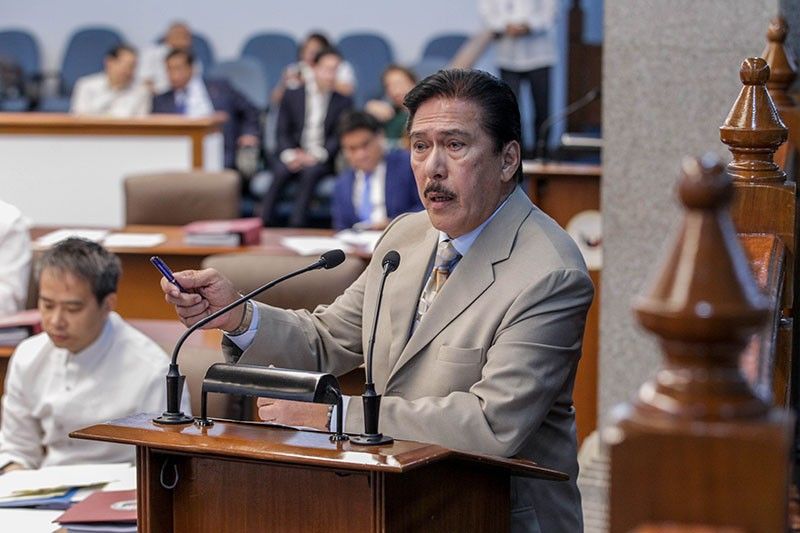Sotto on plagiarism allegations: Translating isn't copying

MANILA, Philippines — Senate President Vicente “Tito” Sotto III on Tuesday continued to deny allegations of plagiarism, almost six years after he was accused of copying from the late US Sen. Robert Kennedy for a speech.
In an interview with Rappler, Sotto once again blamed reproductive health advocates for criticism he received back then.
“The issue on plagiarism was a strategy of those, particularly people connected with International Planned Parenthood [Federation]. If you look at the journal of the Senate, from that time up to the present, there’s nothing that would fall in the category of plagiarism,” he said.
He claimed that when delivering his speeches, he always says that he is “not a scientist, not a doctor.”
“They refuse to listen to that and just claim that I got it from a book, from this or probably an inspirational message that was used by Senator [Robert F.] Kennedy. They say I plagiarized that. Of course not,” Sotto said.
In September 2012, Sotto was accused of lifting portions of a Kennedy speech in 1966 when he delivered the final part of his opposition to the RH bill in Filipino. The late senator's daughter, Kerry, demanded a public apology from Sotto.
Sotto once again defended himself by insisting that translating is not copying.
“It was an inspirational message coming from a pastor that was used by Americans and if we use it and translate it to Tagalog, there’s nothing wrong with that. That’s not plagiarism,” he said.
The Senate president went on: “Because if you think that’s plagiarism, then you must think that ‘Bayang Magiliw’ is plagiarized because it was originally in Spanish. And somebody changed it into English and somebody translated it into Tagalog unofficially. So, is that plagiarism?”
Versions of the Philippine national anthem exist in Spanish (1899), in English (1938), and Filipino (1958). Guidelines on how and when it should be sung are in Republic Act No. 8491, which was enacted in 1998.
Not the first plagiarism charge
It was not the first time that he was accused of plagiarism.
In August of the same year, netizens pointed out that the explanations presented during the first part of his turno en contra speech were copied almost exactly from an article of a blogger Sarah Pope.
He also allegedly plagiarized in his anti-RH bill speeches the online works of bloggers Janice Formichella and Peter Engelman.
A complaint against Sotto was filed before the Senate ethics committee.
In an advisory opinion in 2012, the Department of Justice said that plagiarism is punishable under the Cybercrime Prevention Act only if it corresponds to a copyright infringement under the Intellectual Property Code.
‘Bayang Magiliw’ gaffe
Aside from Sotto’s renewed defense of his plagiarism scandal, Sotto’s referring of the country’s national anthem as “Bayang Magiliw” instead of its actual title “Lupang Hinirang” also incensed social media users.
“Bayang Magiliw” is the first line of the national anthem.
Here are some online reactions to Sotto’s latest blunder:
MS. TAPIA: Class, what's the title of our national anthem?
— R.D. "ToB" Medrano (@Istrayber) May 22, 2018
REDFORD WHITE: Lupang Hinirang po, ma'am.
TITO ESCALERA: Bobo! Bayang Magiliw yun!
...after graduating with a bachelor's degree in plagiarism, Tito Escalera pursued a career in politics and is now the senate president.
He calls Shakespeare a "comedian."
— jo (@kireinasureto) May 23, 2018
He claims translation is not plagiarism.
He calls our national anthem "Bayang Magiliw."
Ladies & gentlemen,
your new Senate President.
uh...misogynist, homophobe, plagiarist, rapist sotto who just called our national anthem “bayang magiliw” as senate president? mr. stark, i don’t feel represented by the govt. pic.twitter.com/2ScqrtIyae
— cosmo (@cosmoniandevil) May 22, 2018
- Latest
- Trending






























